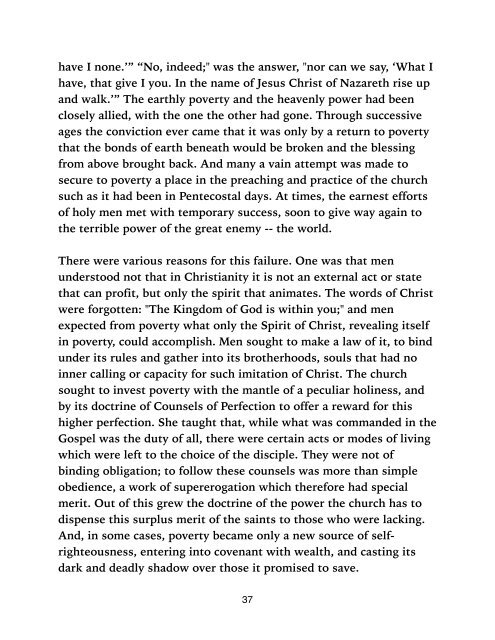Money by Rev Andrew Murray
Challenging! Money Thoughts for God's Stewards by Rev Andrew Murray In all our religion and our Bible study, it is of the greatest consequence to find out what the mind of Christ is, to think as He thought, and to feel just as He felt. There is not a question that concerns us, not a single matter that ever comes before us, but we find in the words of Christ something for our guidance and help. We want to-day to get at the mind of Christ about Money; to know exactly what He thought, and then to think and act just as He would do. This is not an easy thing. We are so under the influence of the world around us, that the fear of becoming utterly unpractical if we thought and acted just like Christ, easily comes upon us. Let us not be afraid; if we really desire to find out what is His mind, He will guide us to what He wants us to think and do. Only be honest in the thought: I want to have Christ teach me how to possess and how to use my money.
Challenging! Money Thoughts for God's Stewards by Rev Andrew Murray In all our religion and our Bible study, it is of the greatest consequence to find out what the mind of Christ is, to think as He thought, and to feel just as He felt. There is not a question that concerns us, not a single matter that ever comes before us, but we find in the words of Christ something for our guidance and help. We want to-day to get at the mind of Christ about Money; to know exactly what He thought, and then to think and act just as He would do. This is not an easy thing. We are so under the influence of the world around us, that the fear of becoming utterly unpractical if we thought and acted just like Christ, easily comes upon us. Let us not be afraid; if we really desire to find out what is His mind, He will guide us to what He wants us to think and do. Only be honest in the thought: I want to have Christ teach me how to possess and how to use my money.
- TAGS
- spiritual-wealth
Create successful ePaper yourself
Turn your PDF publications into a flip-book with our unique Google optimized e-Paper software.
have I none.’” “No, indeed;" was the answer, "nor can we say, ‘What I<br />
have, that give I you. In the name of Jesus Christ of Nazareth rise up<br />
and walk.’” The earthly poverty and the heavenly power had been<br />
closely allied, with the one the other had gone. Through successive<br />
ages the conviction ever came that it was only <strong>by</strong> a return to poverty<br />
that the bonds of earth beneath would be broken and the blessing<br />
from above brought back. And many a vain attempt was made to<br />
secure to poverty a place in the preaching and practice of the church<br />
such as it had been in Pentecostal days. At times, the earnest efforts<br />
of holy men met with temporary success, soon to give way again to<br />
the terrible power of the great enemy -- the world.<br />
There were various reasons for this failure. One was that men<br />
understood not that in Christianity it is not an external act or state<br />
that can profit, but only the spirit that animates. The words of Christ<br />
were forgotten: "The Kingdom of God is within you;" and men<br />
expected from poverty what only the Spirit of Christ, revealing itself<br />
in poverty, could accomplish. Men sought to make a law of it, to bind<br />
under its rules and gather into its brotherhoods, souls that had no<br />
inner calling or capacity for such imitation of Christ. The church<br />
sought to invest poverty with the mantle of a peculiar holiness, and<br />
<strong>by</strong> its doctrine of Counsels of Perfection to offer a reward for this<br />
higher perfection. She taught that, while what was commanded in the<br />
Gospel was the duty of all, there were certain acts or modes of living<br />
which were left to the choice of the disciple. They were not of<br />
binding obligation; to follow these counsels was more than simple<br />
obedience, a work of supererogation which therefore had special<br />
merit. Out of this grew the doctrine of the power the church has to<br />
dispense this surplus merit of the saints to those who were lacking.<br />
And, in some cases, poverty became only a new source of selfrighteousness,<br />
entering into covenant with wealth, and casting its<br />
dark and deadly shadow over those it promised to save.<br />
37

















